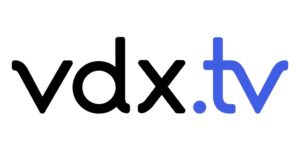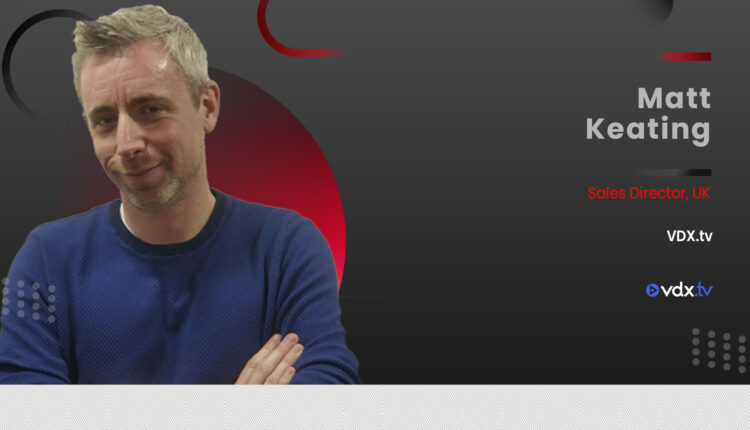Hi Matt, could you tell us about your journey in Tech?
I would probably frame my ‘journey’ more in terms of ‘media’ and ‘advertising sales’ as opposed to ‘tech,’ quite honestly. While I do have quite an analytical mindset and am a stickler for detail, I’ve never been terribly technical, and a conversation that goes deep into the many acronyms flying around in adtech and programmatic tends to lose my interest a little, unless the focus is squarely on ‘real world’ outcomes and practicalities!
I see the tech as the tool – the means with which to help a client deliver a good ad in the right way with the best client service I can manage. I’m someone who leans towards bigger picture, ‘arc of history’ type-thinking as opposed to getting deep into the weeds of the latest technical development, which while obviously important, doesn’t necessarily change the fundamentals of what we’re here for.
Essentially, I started out selling print, moved into online ad sales, and from there worked across mobile, casual gaming, performance and now digital video and CTV. This has involved working for both UK and international companies and seeing how things differ (or don’t!) in various parts of the world- invaluable for adding both breadth and depth to my experiences.
How has the Covid-19 pandemic reshaped your view of the business environment that your business operates in?
In terms of what a typical day looks like, the pandemic has caused a real paradigmatic shift in routines, flexibility and work-life balance for many people, not least myself. It’s important to be conscious of the fact, however, that many people, in many industries and roles, don’t have the luxury of working from home – and for some, the office is a much better or more desirable working environment.
That said, there has definitely been a silver lining in being able to see much more of my kids, not having to spend 2+ hours a day commuting 5 days a week, and generally being somewhat liberated from the old, unquestioned strictures of the 9-6 and ‘presenteeism.’ At least partial credit for this has to go to my colleagues and my company VDX.tv in general, in terms of looking after each other, being pragmatic and focusing on outputs and not process.
It’s been interesting how the ‘act’ of sales has evolved since lockdown. The default is more likely to be a conference call rather than a face-to-face, at least for initial and ‘BAU’ meetings. In-person contact is more likely reserved for ‘big’ meetings and social events. A remote structure also allows our international account management and technical staff to join in meetings they wouldn’t otherwise be able to contribute to. That said, for big ‘set piece’ presentations and taking relationships to the next level, face-to-face is always best, not least to engender better rapport, interaction and avoid the lazy ‘video off/sound off’ types!
What sets VDX.tv apart from the competition?
Product-wise, our VDX units are some of the most tailorable and interactive cross-platform video ad formats on the market, and we offer them as fully-formed vertical solutions that cater specifically to the needs of a given vertical or sub-vertical, be that car manufacturers, hotel chains, or particular types of FMCG brands.
It’s that verticalised combination of creativity, insights, targeting, media and measurement, reaching the right households or individuals on the move, that sets us apart and allows us to drive real results for a wide range of companies globally. That, plus a serious focus on client service, backed up by our own proprietary tech stack and deep ‘institutional’ experience- average tenure here is in excess of 5 years, which is highly unusual for adtech.
How do you see Omnichannel engagement evolving over the years to come?
This depends on what is meant by ‘engagement;’ at the macro level, the fact that we all lead such busy lives, with so many potential (and often fleeting) touchpoints during the day, should be seen as an opportunity, not a problem to be overcome. Modern life is fast, but people are only ‘hard to reach’ if you don’t have a decent ad and aren’t thinking creatively in how you go to market. A good budget undeniably helps though!
Over time there will be a convergence of different marketing channels– TV is blurring into digital via the ‘bridge’ of CTV; Digital Out of Home (OOH) and audio ads are evolving in terms of how they are transacted. But we’re still some way away from the nirvana of a one-stop shop, where everything can be activated and measured apples-for-apples, and things like incrementality and attribution just work across everything. In fact, it’s unlikely to ever be that simple – life is just too messy and analogue!
What’s interesting though is how these channels will interact and combine as far as user journeys are concerned, and how marketers can build strategies to maximise the strengths of different elements along the way.
A good example of this right now is how TV and digital experiences on personal devices will interplay at the household level. TV, for example through advertiser QR codes, and in the near future through brand-driven ‘gamification’ perhaps, is definitely starting to become more of a ‘lean forward,’ interactive environment. Though really, if you want proper engagement and personalisation, you’ll need to get people 1-1 on their phones. This is very much the thrust of what we’re doing this year at VDX.tv- utilising the unbeatable impact of the big screen, but ensuring the story doesn’t end there, by drawing people to learn more about a brand’s offering through interactive ads on smaller devices.
This kind of concept feels, to me, like the start of a theme that could go in all sorts of interesting directions in coming years- and will be best exploited by brands who are least afraid to be innovative!
Also Read: MarTech 360 Interview With Jason Widup, VP of Marketing at Metadata.io
How can Publishers leverage video to drive growth?
Video is one of the best storytelling tools we have and can clearly be a lucrative strategy to pursue. Publisher just need to ensure that they maintain standards and quality. Despite the temptation to open up to lowest-common denominator revenue opportunities, publishers need to remain mindful of user experience in order for video to be a key part of commercial and editorial success.
As an experienced Sales practitioner, what advice would you give someone who aspires to pursue sales as a career?
This is a big question with many things that could be said, but in the first instance, I would ask ‘why,’ and then ‘selling what’? Declaring you want to be in ‘sales’ is equivalent to saying you want to be a ‘driver’- a driver of what – a train, a racing car, a lorry? What kind of ‘stuff’ are you into, and can see yourself being passionate about?
Ask yourself- are you a people person, a real networker, or are you a more ‘bookish’ or details person? Are you a hunter, who is always looking for the next new ‘win,’ or are you more the type who likes to nurture and grow a particular niche, and do the absolute best you can for that? This might inform, for example, if you are better suited to new business development, or something closer to technical account or client relationship management. It’s all sales in one form or another though, and you’ll need resilience and persistence either way.
In terms of more specific advice, one of the key things about sales is to be a good listener, and to develop trust by being an honest broker. If you can develop a rapport with someone and get them to tell you what is really keeping them up at night, what gaps they have that make their job more difficult, you can tailor your sell to meet that need.
Lastly, don’t be shy or evasive about that fact that you want to sell them something, and show why it’s a good fit for them (or indeed not a good fit this time, but soon!). There is nothing worse than a salesman who is disingenuous about his motives or pushes a product on someone they know is wrong, with no thought for the future.
Your top pick for a book on marketing that everyone should read? Top 5 apps that you use for business?
Honestly, I’ve never been that big on reading ‘industry’ or self-improvement-type books. I’m too busy with my backlog of history and fiction (especially sci-fi) books! If you can get hold of a copy of The Long and Short of It (Binet & Field, 2013) that would be time well spent however, and, while it’s almost too obvious, the famous Be Our Guest (2011) by none other than Disney themselves, is excellent.
I’ll often find something that resonates in my wider ‘non-industry’ reading as well, for example this on-point quote from Richard Powers’ Pulitzer Prize-winning novel The Overstory (2019):
“The best arguments in the world won’t change a person’s mind. The only thing that can do that is a good story.”
That’s as true for politics as it is for ad sales, with the obvious flipside that this principle can very much be used for both good and ill.
As for apps, I don’t use any particular apps for business apart from LinkedIn and Twitter, where I like to share interesting trade articles or comments, highlight important client successes or award wins etc., and occasionally add my own industry thoughts or critique if I feel like I have something worthwhile saying! I also use Twitter heavily for my own personal use, but my general rule is never post anything that you wouldn’t want to have to justify to your mum, or a future employer!
What metrics do you use to define success?
The answer would depend a bit on the context of course, and the scale/timescale in mind (tactical vs strategic, short vs long term) but essentially: sales, customer growth, and client satisfaction – often manifested by repeat bookings and even developing friendships, some of which can end up lasting a long time! The same goes for workmates and general industry acquaintances – always be nice, and don’t forget that the young exec you just met was very much like you were once, and may end up being very senior somewhere one day!
Thanks, Matt!
Also Read: MarTech 360 Interview With Hersh Patel, Founder and CEO at Hindsight


Comments are closed.